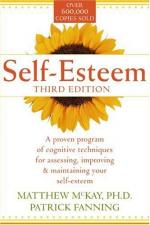|
This section contains 1,555 words (approx. 6 pages at 300 words per page) |

|
Considered an important component of emotional health, self-esteem encompasses both self-confidence and self-acceptance.
Experiences at home, at school, and with peers can all build or diminish a child's self-esteem. Psychologists and child-care authorities who write about self-esteem generally discuss it in terms of two key components: the feeling of being loved and accepted by others and a sense of competence and mastery in performing tasks and solving problems independently.
The value placed on self-esteem by the mental health profession over the past 30 years has been critiqued by psychologist Martin Seligman. Seligman claims in order for children to feel good about themselves, they must feel that they are able to do things well. He claims that trying to shield children from feelings of sadness, frustration, and anxiety when they fail robs them of the motivation to persist in difficult tasks until they succeed. It is precisely such success in...
|
This section contains 1,555 words (approx. 6 pages at 300 words per page) |

|


